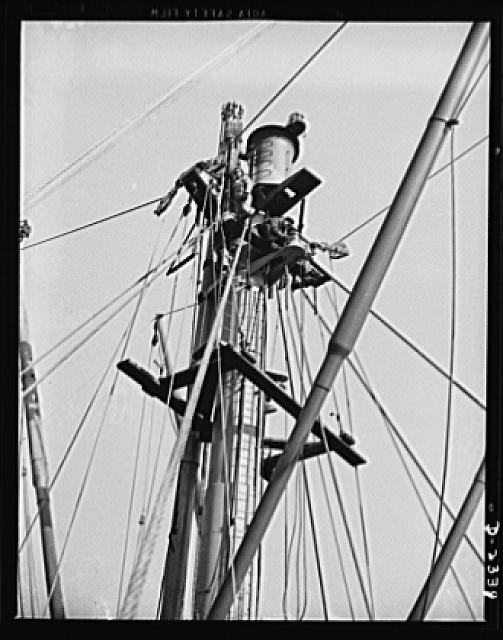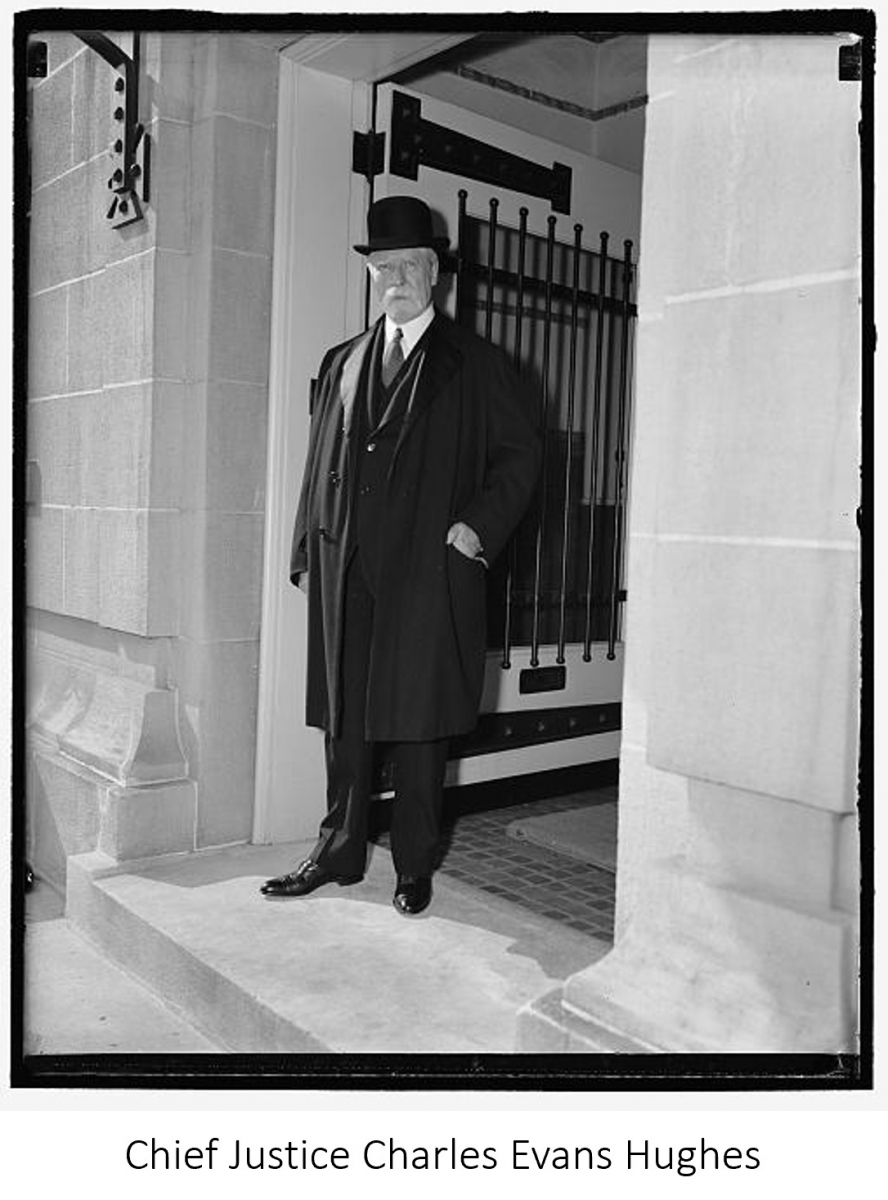Historical Context
Crowell v. Benson (1932) was one of the most important cases dealing with the emergence of administrative agencies in the first half of the twentieth century. Most administrative agencies are executive-branch bodies designed to make rules enforcing the broader mandates of statutes and to resolve disputes that may arise under those laws. Modern examples include the Occupational Safety and Health Review Commission, which resolves disputes involving workplace safety, and the Social Security Administration’s Office of Hearing Administration, which determines whether people qualify for certain government programs like disability benefits.
Executive agencies became an increasingly powerful part of local, state, and federal governance during the late nineteenth and early twentieth centuries. As American society became more urbanized and the economy more complex, many reformers believed that the government needed to develop more flexible and efficient ways of resolving problems and determining individuals’ rights. Because administrative agencies did not use the complicated and formal rules of procedure and evidence employed by courts, some believed agencies were better at deciding certain questions than the courts.
Legal Debates before Crowell
The use of agencies to uncover facts and decide legal questions was controversial in some quarters. Some critics claimed that the use of agencies to decide disputes between private parties that would previously have been decided by courts infringed on the judicial power granted to courts by Article III of the Constitution. Some complained that the use of administrators as fact finders would impair the Seventh Amendment’s guarantee of a right to a jury trial in many civil cases. Others worried that agency determinations could be arbitrary and thus violate the Due Process Clauses of the Fifth and Fourteenth Amendments.
Parties unhappy with agency decisions often attempted to have courts overturn the results. Yet it was not clear what, if any, deference courts should give to agency decisions in such cases. Although the scope of judicial review of agency decisions may seem like a narrow, technical question, it had important ramifications. Reviewing most agency decisions as if they had never happened, for example, could damage agencies’ efficiency and undermine confidence in the reliability of their rulings. On the other hand, if judges simply deferred to every agency decision, then the right to appeal to the courts would be almost meaningless.
Unsurprisingly, then, most proponents of administrative adjudication advocated a deferential review under which courts would only overturn arbitrary decisions or glaring errors. Skeptics of the new agencies argued that courts had to do more. Since agencies did not have the political independence of courts, they argued, administrative decisions could be prone to bias; since agencies lacked formal judicial procedures, they might be more prone to lax decision making than courts. Thus, these critics argued, the courts had to exercise a de novo (new) review of agency decision making to ensure fairness. Under the de novo standard, a court would give no deference to agency proceedings and would hear the case as if the agency proceedings had not occurred.
The Case

Crowell began on July 4, 1927, when Joe Knudsen, a Norwegian-born laborer, was injured while working on a barge on the Mobile River in Alabama. Shortly before the accident, Charles Benson, the barge’s owner, had fired Knudson for improperly cutting an expensive steel cable. At the urging of a third man who was then using the barge, Knudsen had returned to make amends by splicing the cable back together. While Knudsen was doing this, a piece of equipment fell on him, severely injuring his leg.
The primary question in the case was whether Knudsen was Benson’s employee at the time of his injury. A federal workers’ compensation law permitted maritime workers injured on the job to recover a fixed sum for their injuries. If Knudsen was no longer deemed an employee, however, he would not be entitled to payment under the law.
Knudsen’s employment status was not a simple question because working relations in the Alabama boat industry were fluid and informal. Letus Crowell, a deputy commissioner of the Employees Compensation Commission, an administrative agency charged with determining workers’ claims under the compensation law, heard most of the testimony in the case. On the basis of this evidence, some of which would not have been admissible in court, Crowell determined that Knudsen was Benson’s employee at the time of the injury and awarded him compensation.
Benson challenged Crowell’s ruling in the U.S. District Court for the Southern District of Alabama. District Judge Robert Ervin decided that he should review the case de novo. Judge Ervin reasoned that if he interpreted the compensation law to prohibit him from going “into the real facts,” it would “deprive the employer of labor of the right to a fair judicial hearing” and thus violate the Constitution. After rehearing the case, Judge Ervin determined that Knudsen was not an employee and denied him compensation. The Court of Appeals for the Fifth Circuit affirmed Judge Ervin’s decision, and Knudsen appealed to the Supreme Court of the United States.
The Supreme Court’s Ruling

At the Supreme Court, Knudsen was joined by Solicitor General Thomas Thacher. Defending the workers’ compensation system set up by Congress, Thacher argued that the Court would disrupt the balance of governmental administration if it chose to ignore the commissioner’s findings in Crowell. While Thacher conceded that courts could determine whether administrators had exceeded their authority, he argued that the question of whether Knudsen was an employee was no different from any other factual determination that “may constitutionally be left to administrative determination.” Benson’s attorneys, however, argued that the question whether Knudsen was Benson’s employee was a fundamental one: if he was not an employee, the commissioner would have no jurisdiction and could not legally order Benson to pay Knudsen for his injuries. Since the agency’s power to hear the case depended on this issue, Benson’s attorneys argued that he was entitled to a fresh judicial hearing on that point.
In an opinion by Chief Justice Charles Evans Hughes, the Supreme Court affirmed the decision against Knudsen. Hughes had served as Governor of New York prior to his appointment as Chief Justice. As Governor, he had been a proponent of the use of agency adjudication in the interests of efficiency. His opinion attempted to reach a balance between those interests and the concern that judges had to have a broad power to review agency decisions to ensure fairness. In most instances, Hughes reasoned, it was appropriate for courts to defer to agency decisions. Courts had a duty to review determinations of “fundamental” or “jurisdictional” questions closely, however. In this instance, Hughes characterized those questions as ones that determined the constitutional power of Congress to regulate the subject matter of the dispute. In Crowell, there were two such questions, both related to Congress’s power to regulate interstate commerce: (1) Whether the accident took place on a navigable waterway; and (2) Whether Knudsen was an employee.
Justice Louis Brandeis dissented from Hughes’s opinion, joined by two other justices. Brandeis argued that the Court’s definition of jurisdictional facts potentially allowed federal judges to second-guess too many decisions that should have been committed to agencies.
Aftermath and Legacy
Progressive advocates of agency adjudication criticized the Court’s opinion in Crowell. They worried that the definition of fundamental facts was too broad and would leave too many agency decisions open to second guessing by the courts. Nevertheless, the number and power of federal agencies increased rapidly in the years following Crowell as Franklin Roosevelt’s “New Deal” agenda employed a host of new agencies to deal with problems caused by the Great Depression. In 1946, Congress passed the Administrative Procedure Act. Hailed by some as a “bill of rights” for administrative decision making, the Act adopted a form of judicial review that reflected a similar balance between efficiency and access to judicial review as the Court’s decision in Crowell.
Discussion Questions
- Why does it matter whether a court or an agency decides a particular issue? Are there some questions courts should always resolve? Are there issues that agencies would be better at deciding than the courts?
- Chief Justice Hughes’s opinion for the Court in Crowell distinguished between cases that involve the “private” rights of parties and those that involve “public” rights, such as the entitlement to a claim from the government. Why is this distinction important? Is it more important for the courts, rather than agencies, to hear one set of cases over the other?
- Federal agencies tend to deal with cases involving a single area of the law, such as immigration or employment, whereas U.S. district courts hear a much wider range of cases. What might be the advantages of specialization and generalization?
